Back in June, we began to harvest the wheat the Lord had graciously granted us!
The Stongers graciously offered to help, so Mr. Stonger and the boys got out there and began gathering in the wheat. We started with sickles, but found we could just pull it up by hand:
Here I am tying the wheat into sheaves:
And here’s the first row done, with the sheaves put into stooks:
This is about a month later, mid July. Amidst all of the other projects around here, I was able to continue and do about another row before the weeds took over:
Then, it was time to get them out of the field and into the barn:
With us unable really to harvest anymore, the goats were able to enjoy the delectable delights of the overgrown field! 🙂
And here are most of the sheaves in the barn (I had already begun to process some by this time):
And speaking of processing, the next step with the wheat was to try to extract the berries. This is always the fun part. We’ve tried flailing in the past, but that just sort of ended up being a bunch of flailing more than anything else. So, this time, I thought I’d try a couple of different things.
I tried turning a bicycle upside down, pedaling it by hand, and trying to thresh the wheat in the spokes. This actually kind of worked, but not too well, and often the heads would break off. I also tried a harder rubber mallet, and that worked not too badly — good control, just a lot of pounding. Then, for some reason I thought to try a 9 inch, 2×4 block of wood, and up to this point, this has worked the best. You can control things so the wheat heads don’t bounce around, you can use the sides to cover more area, or use corner edges or even corners for more accuracy. It’s a little tedious, but it seems to work pretty well.
Here is a little demonstration video of that process:
We’re still in the threshing process, but hopefully at some point Lord willing it will be finished, and then it’ll be onto the separation process!
We are grateful to the Lord for granting the wheat, and for being able to continue the process of it, even for the physical strength to do so!
— David
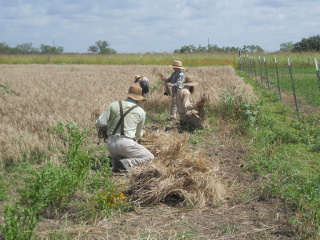
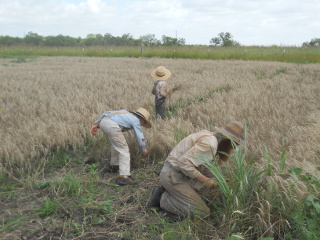
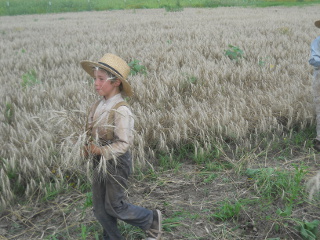
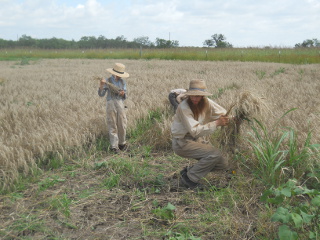
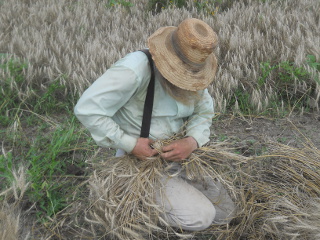
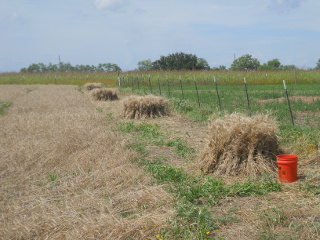
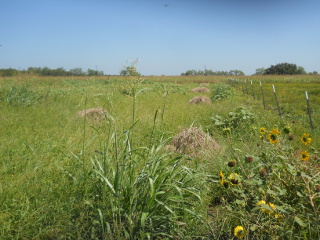
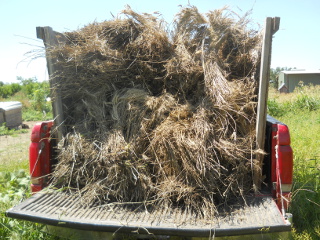
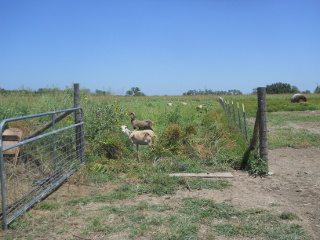
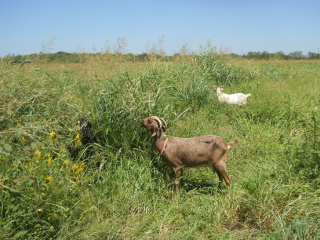
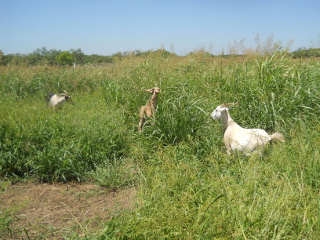
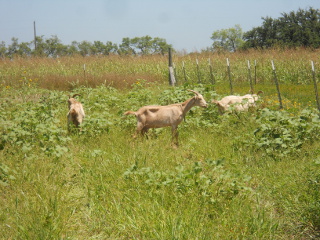
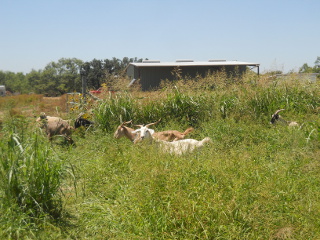
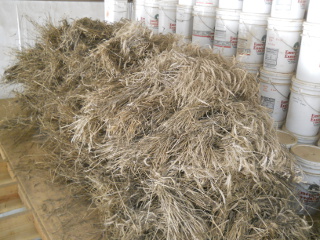
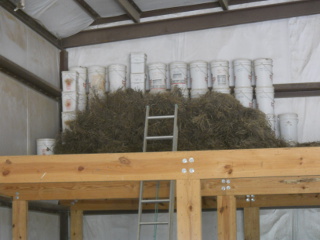
Leave a Reply